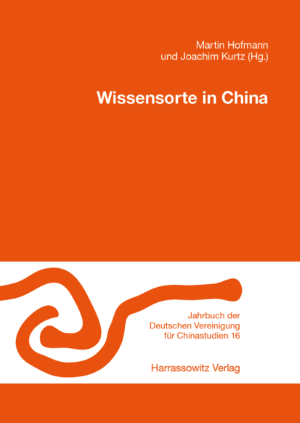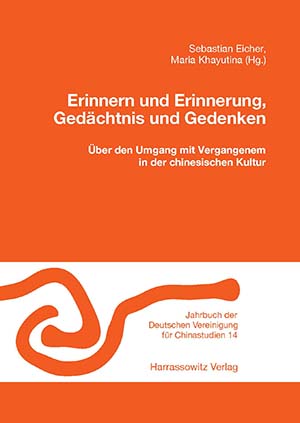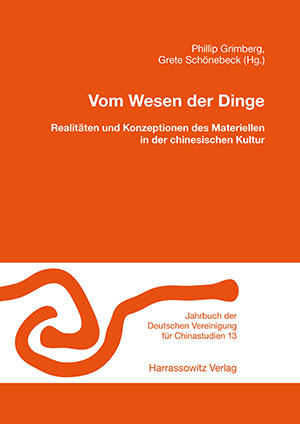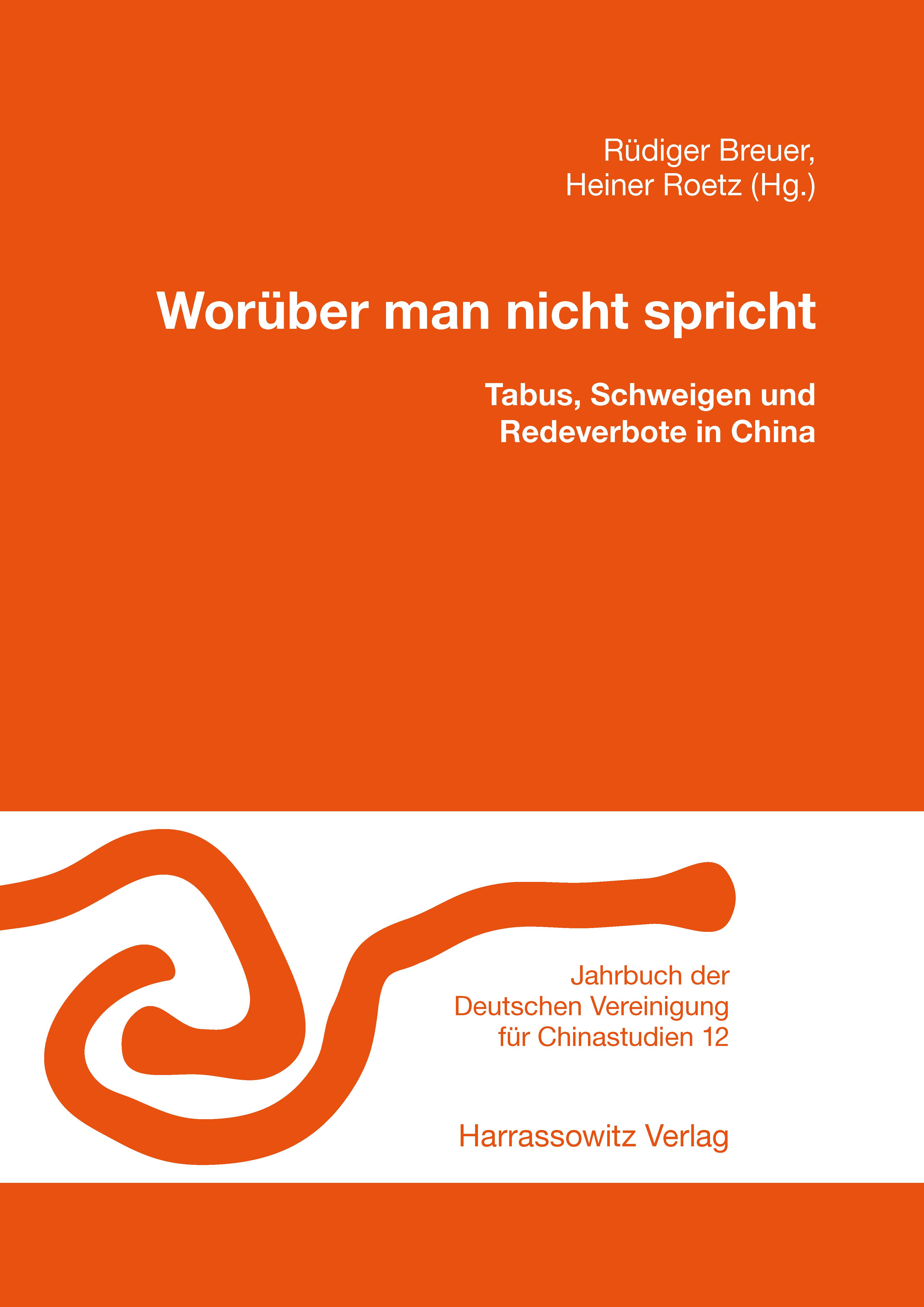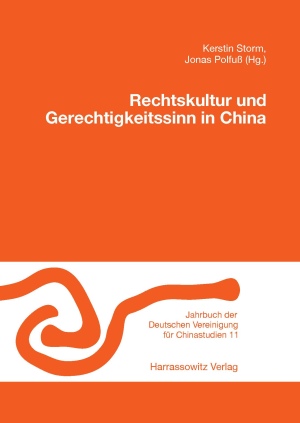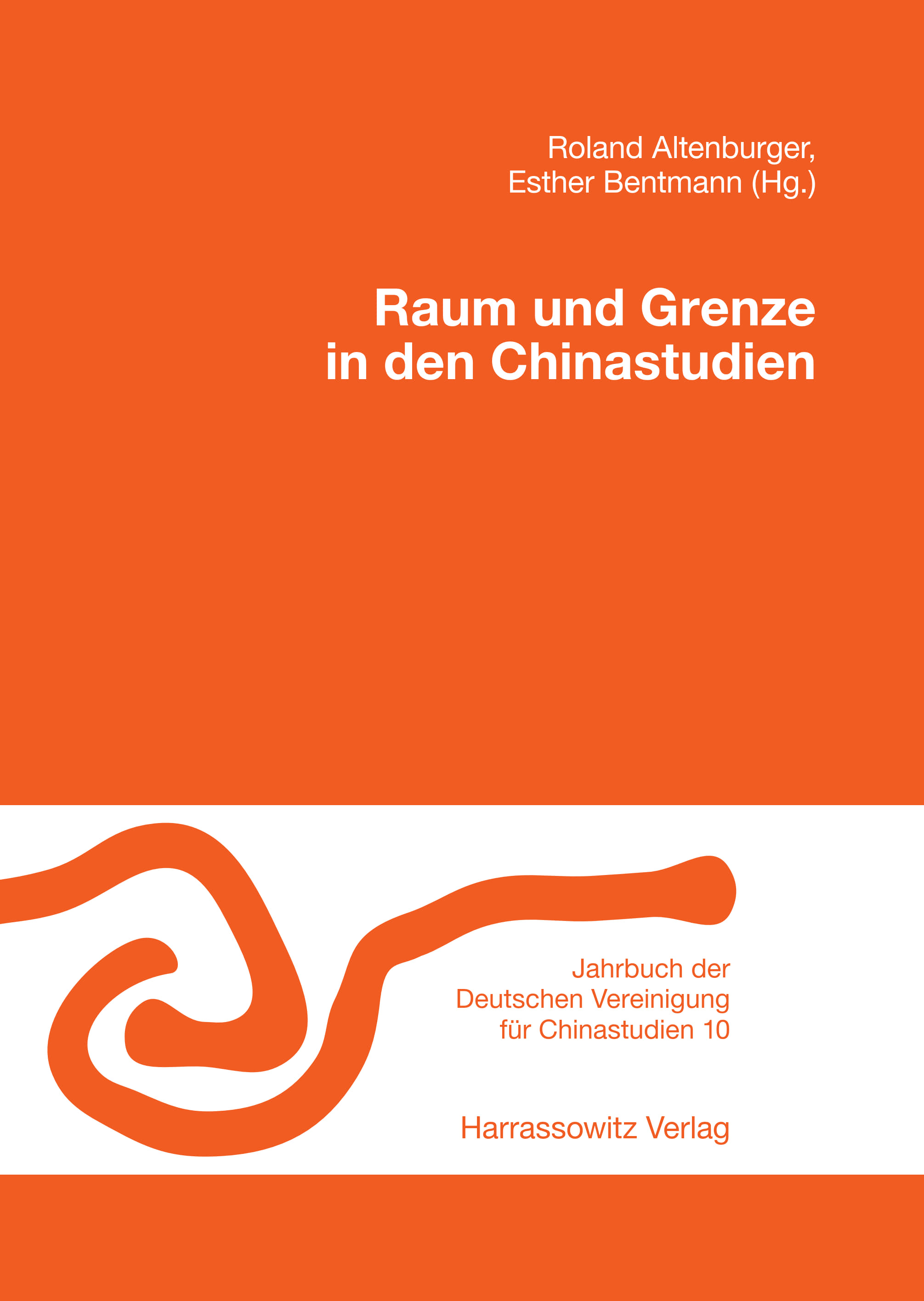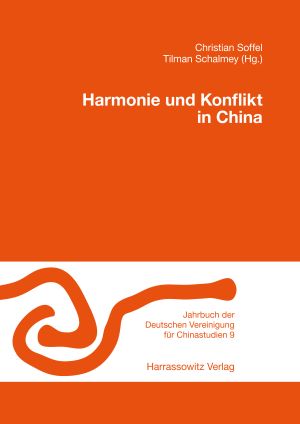Jahrbuch der Deutschen Vereinigung für Chinastudien
The Yearbook of the DVCS is an established scholarly medium for German-language sinological research. The first volume was published in 1995. The yearbooks are thematically oriented according to the focal points of the respective annual conferences and cover a broad spectrum of content. They are published in print by Harrassowitz Verlag (Wiesbaden) and can be ordered directly there (https://www.harrassowitz-verlag.de/reihe_393.ahtml). As of 2018, the printed new publications will be made available in open access after an embargo period of twelve months.

Published so far
Krise und Risiko.: China und der Umgang mit Unwägbarkeit
In times of global pandemics, unexpected wars, and increasing social divisions, many societies are more aware of “crisis” than ever before in the 21st century. Political, social, and cultural certainties that had remained unquestioned for decades have clearly begun to falter. Not only in German-speaking places and in Europe, this is forcing a renegotiation of how to deal with imponderabilities, not least in relation to China.
The volume Krise und Risiko (Crisis and Risk) presents selected contributions to the XXXIst annual Conference of the German Association of Chinese Studies (DVCS), which was organized in November 2020 by the Institute of Asian and Oriental Studies at University of Zurich and held virtually due to the Covid19 pandemic. The eleven contributions in the volume cover a wide range of topics, from coping strategies during the coronavirus pandemic in the People's Republic of China in 2020 to disaster motifs in popular narrative literature of the Ming period to the topos of suicide as a protest used as a putative strategy for overcoming personal crises in ancient philosophical texts. They not only shed light on different periods, geographical and social spheres in China, but also open up a broad panorama of methodological approaches, written and oral sources, and analyze the related social, artistic, and religious practices and cultures of knowledge.
Wissensorte in China
All knowledge has its place. The spaces in which knowledge is produced, stored or passed on exert a specific influence on its content and form. In the wake of the spatial turn, questions about the local conditions of knowledge have come into focus in various humanities and social science disciplines: Which places play a formative role in the collection and interpretation of knowledge? How do spatial conditions influence theories and procedures? Which site-specific forms and media are used to preserve or pass on knowledge? And what relevance does the spatial reference have for the validity of knowledge?
Wissensorte in China explores these questions in eleven case studies and an overview article. The articles cover a time period from the Han to the present day. They examine the spatial dimensions of institutions of higher education and sites of vocational training and further education. They reconstruct commercial and religious sites such as book boats and Buddhist revolving wheel sutras cabinets, but also analyze texts and social practices that can be understood as knowledge sites of their own kind. The articles thus provide fascinating insights into one of the world's richest cultures of knowledge.
The volume contains selected contributions of the XXXth annual Conference of the German Association for Chinese Studies (DVCS), which took place in November 2019 at the Center for Asian and Transcultural Studies (CATS) at Ruprecht-Karls-Universität Heidelberg.
Erinnern und Erinnerung, Gedächtnis und Gedenken: Über den Umgang mit Vergangenem in der chinesischen Kultur
Keeping parts of the past in the collective consciousness and bringing them to mind also directly shapes the subjective perception of the individual. Shared memories are an important basis of identity and community building. Forms of reproducing and reproducibility of memory, which include recording the past as well as preserving present knowledge, depend on culture and history. Thus, every culture of remembering and commemorating – as well as of forgetting – includes social conflicts, series of events, crises and blows of fate as well as positively charged moments and serendipities. In order to show the importance of commemorative culture for China's past and present development, the volume edited by Maria Khayutina and Sebastian Eicher looks at Chinese commemorative culture from historical, philological, literary and cultural studies perspectives, covering a long period from the early Middle Ages to the present. The case studies by nine authors are dedicated to such diverse sources as early medieval geographical works, dynastic histories, Song dynasty poems, Ming novels as well as dictionaries, UNESCO intangible cultural heritage and contemporary films, all the way to current developments in the field of artificial intelligence.
For technical reasons there may be minimal differences between this digital version and the print version from Harrassowitz.
Vom Wesen der Dinge: Realitäten und Konzeptionen des Materiellen in der chinesischen Kultur
Von dieser Annahme ausgehend werden in diesem Band die Beweise materieller Kultur Chinas aus ganz verschiedenen Perspektiven und mit sehr unterschiedlichen methodischen Zugriffen untersucht. Das in den hier versammelten Aufsätzen abgebildete thematische Spektrum reicht u.a. von soziologischen Untersuchungen moderner Machtarchitektur und einer Ethnographie des Recyclings von Bauschutt im gegenwärtigen China über die literaturwissenschaftliche Analyse sogenannter „Dinggedichte“ bis hin zu Fragen sozialistischen Möbeldesigns und dem Problem des Kulturbegriffs in der chinabezogenen archäologischen Forschung. Allen Beiträgen gemein ist jedoch der Versuch, den Dingen dialogisch zu begegnen und diese dabei „zum Sprechen“ zu bringen.
N.B.: Aufgrund einer unvollständigen Herausgeberangabe auf der Titelei des Buches wurden sowohl die PDF-Datei des Buches als auch die PDF-Datei der Titelei am 24.11.2021 ausgetauscht.
Worüber man nicht spricht: Tabus, Schweigen und Redeverbote in China
Self-imposed or socially or state-imposed speech taboos have always accompanied Chinese cultural history, as have attempts to break or circumvent them. Not only philosophy, historiography and literature have stood in this field of tension, but also moral and political action, which is still confronted with speech taboos today.
Worüber man nicht spricht gathers eleven contributions that span an arc from Chinese antiquity to the present day and illuminate the topic from various perspectives. They are examined: Cases of incest in ancient China; the problem of domestic violence in contemporary China; the originally strictly confidential "family teachings of Zhu Xi"; guidebook literature on China with its recommendations and prohibitions; the criticism of the republican writer and intellectual Lu Xun of mechanisms of power; the orientation of research on the 'Book of Changes' (Yijing); political factionalism in the one-party state of China; the linguist Wei Jian¬gong and his justifications of language policy measures; the political commitment of the filmmaker Shi Hui in the 1940s and the activities of the performance artist He Yunchang in the political and social context of the People's Republic of China. In this way, a multifaceted picture of taboos and prohibitions of speech in China's past and present is created.
Rechtskultur und Gerechtigkeitssinn in China
Already early writings from China are shaped by discourses on order and law within and between states. Whether in the philosophical debate between Confucianism and Legalism, or in the discussion and interpretation of criminal law by civil servants at court, the understanding of law and the sense of justice remained of central importance throughout the history of the Chinese empire. Even today, China is a source of controversy with regard to crime, criminal law and ethics. In particular, Chinese characteristics and foreign influences are being critically discussed at home and abroad. In China's current social discourse, questions of social justice and equality of opportunities, which are also related to the legitimacy of the Chinese government, are of core interest. The range of topics related to law and justice outlined here was the focus of the 25th annual conference of the German Association for Chinese Studies (DVCS), which took place in Münster on November 7-9, 2014. This conference volume brings together contributions by elevenauthors who approach law and justice in China from philological, philosophical, literary, historical, sociological, political and, last but not least, jurisprudential perspectives. The volume spans the full range of Chinese studies both methodologically and chronologically by analysing relevant issues from the Western Zhou period to the recent present. The result is a multi-faceted interim state of scholarly discussion that also provides a well-grounded basis for future discussions.
For technical reasons there may be minimal differences between this digital version and the print version from Harrassowitz.
Raum und Grenze in den Chinastudien
“Raum und Grenze” (Space and Border) was the theme of the XXIV Annual Conference of the German Association for Chinese Studies, held at the Julius-Maximilians-Universität Würzburg in November 2013. Participants were invited to explore the epistemic potential of a spatial turn in China-related research. In addition to contributions with the conventional approach of space and border as territoriality, studies on space as a social construction were also presented. Practices of spatial constitution, development and control as well as acts of inclusion and exclusion played an important role.
Harmonie und Konflikt in China
In the discourse on China, a country that many observers believe to be characterised by harmony, the aspect of conflict is often underexposed. Yet both social tensions and intellectual controversies have always been omnipresent in Chinese culture. They have proved to be a decisive force for cultural change and social development, both in ancient and modern times. Conflict and harmony do not necessarily stand in irreconcilable opposition; they often form a symbiotic relationship, evident in the interplay between freedom and oppression.
Many challenges in China's intellectual and social life can be traced and analysed within this tension between conflict and harmony. The authors of the 15 papers in this volume examine these issues from the perspective of various China-related disciplines, including philosophy, literature, sociology, political science, law and history.




